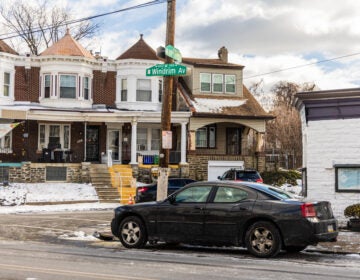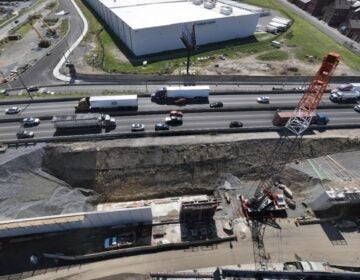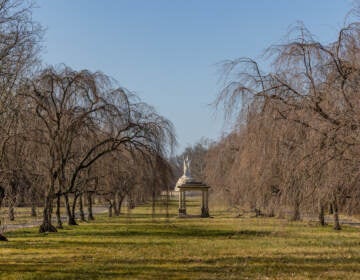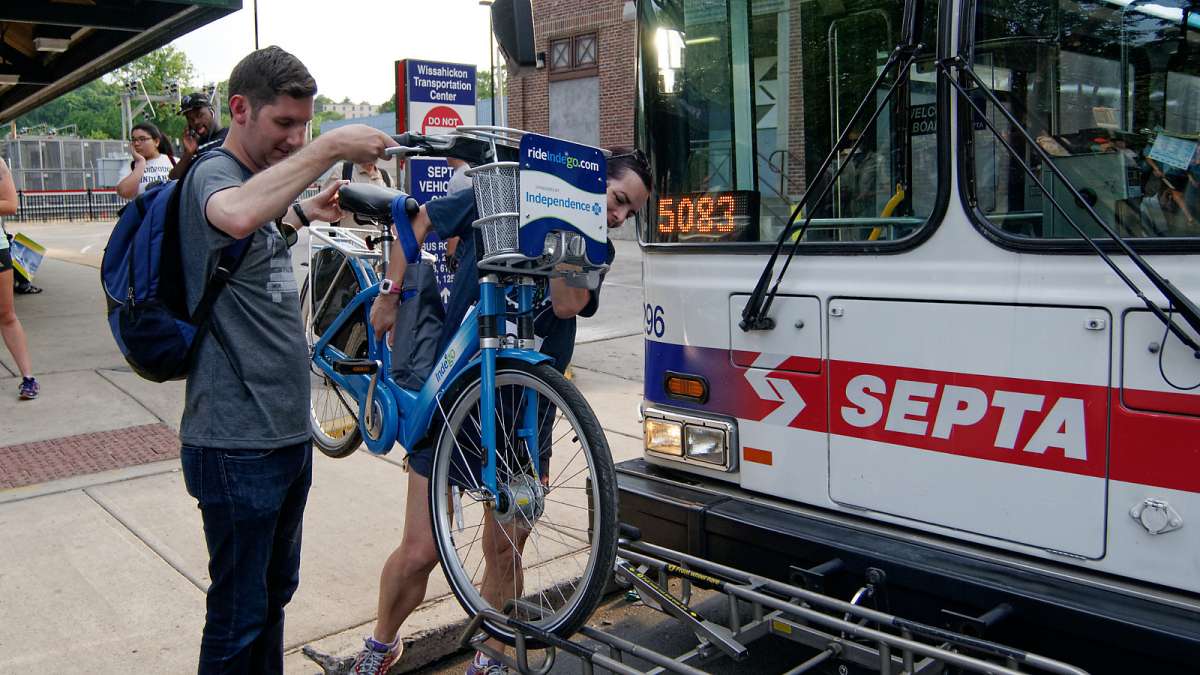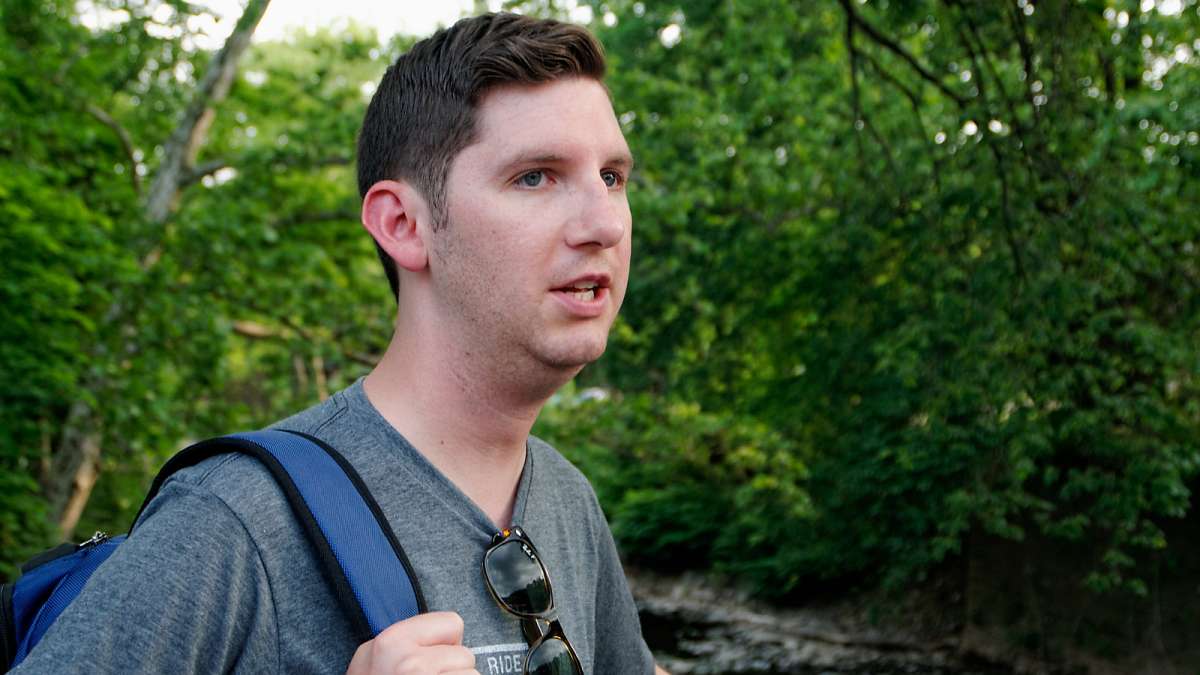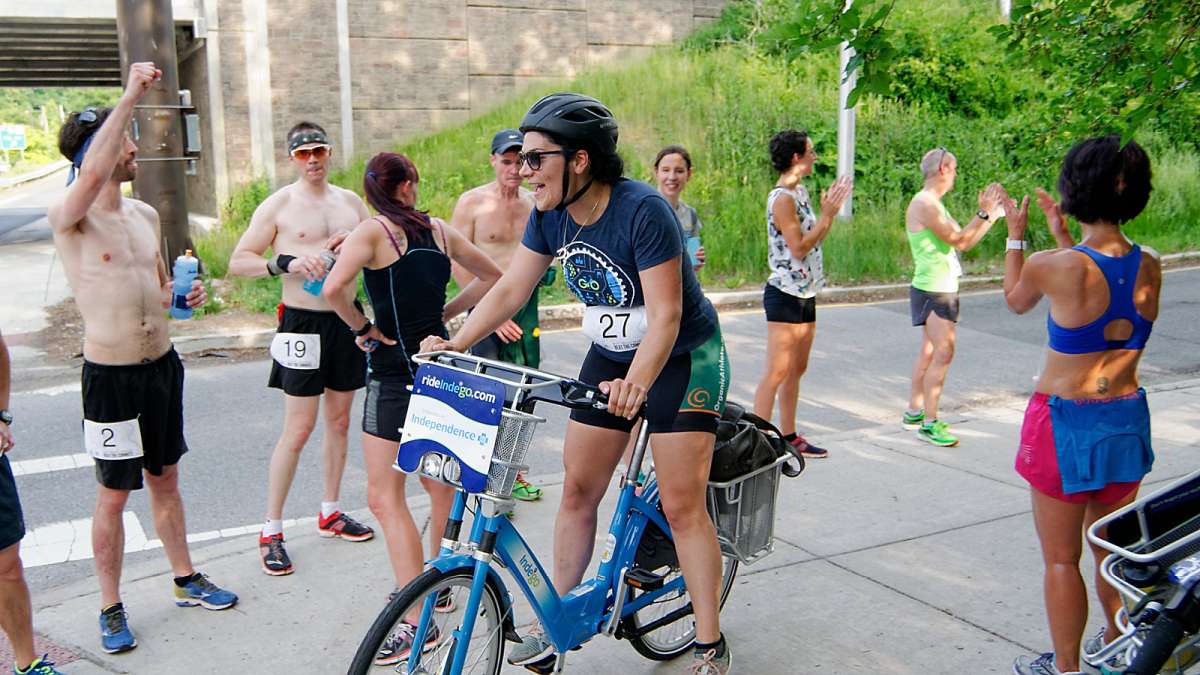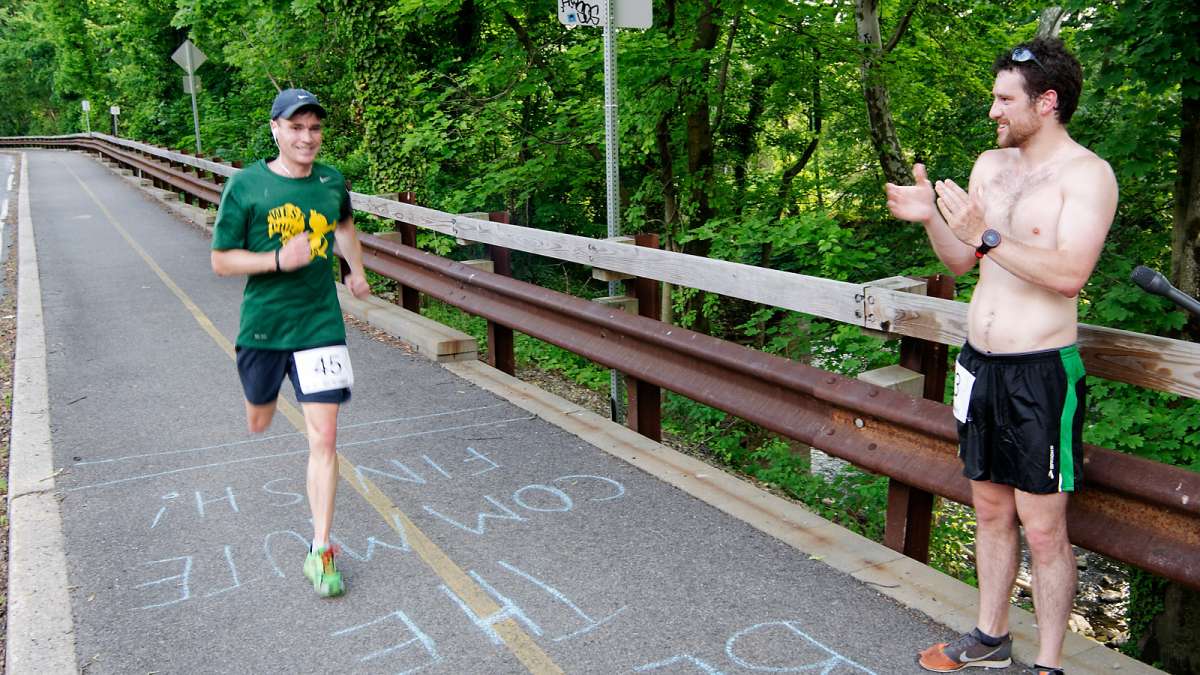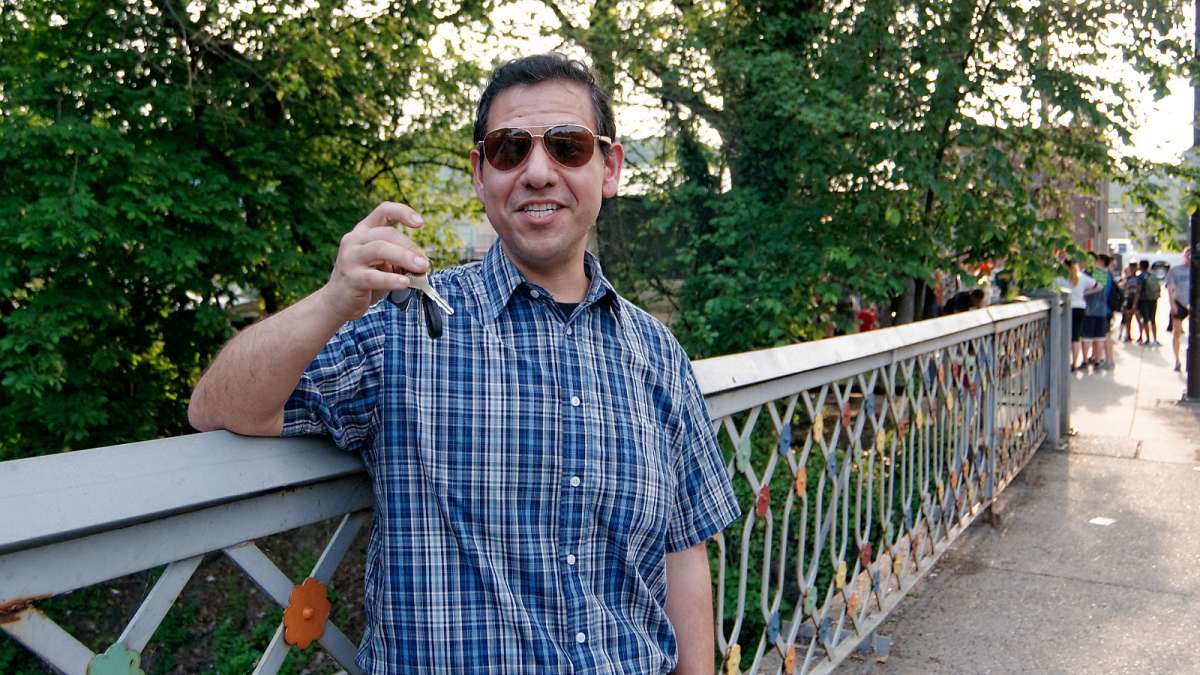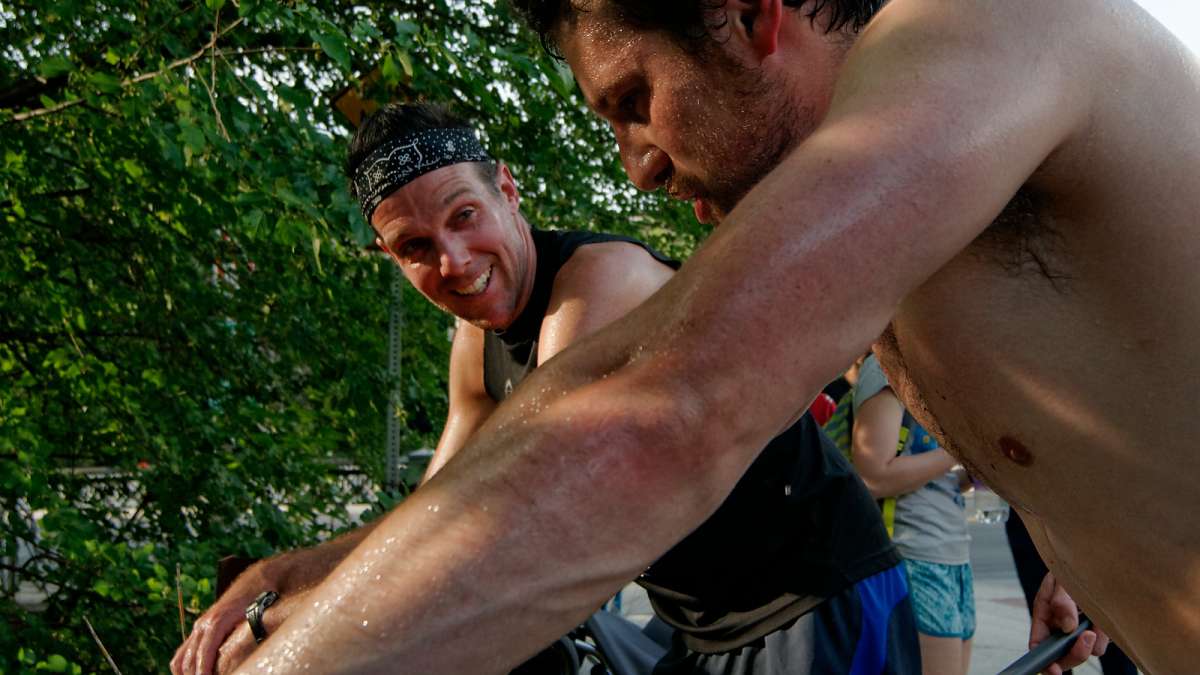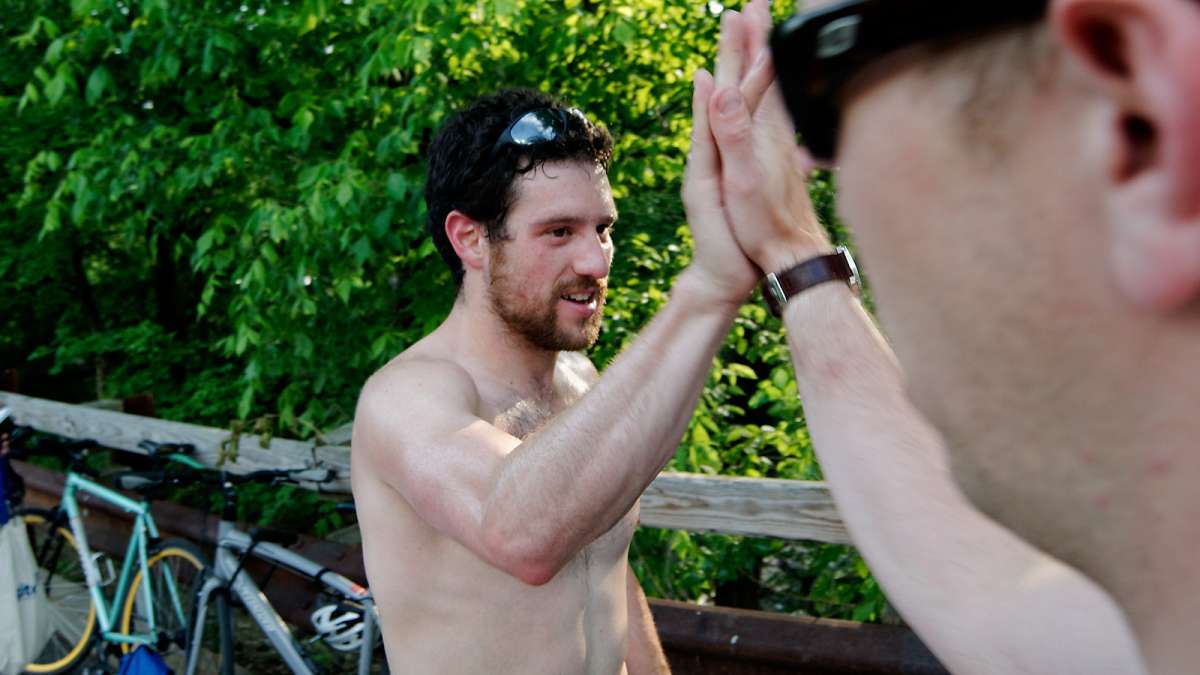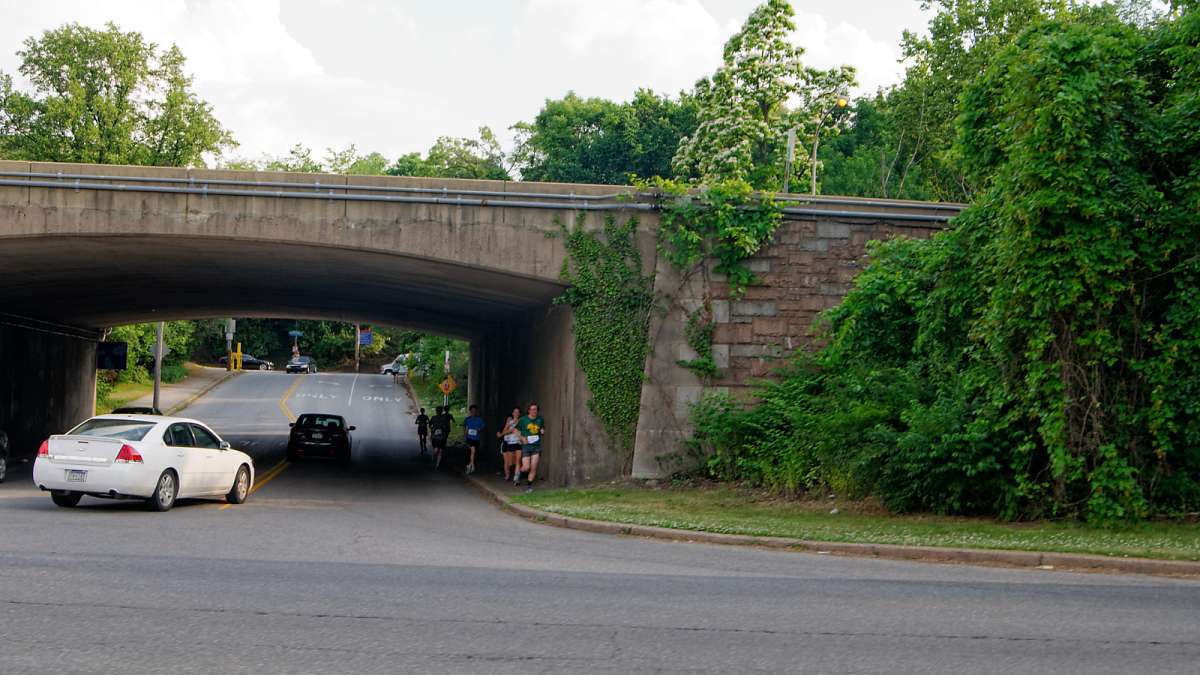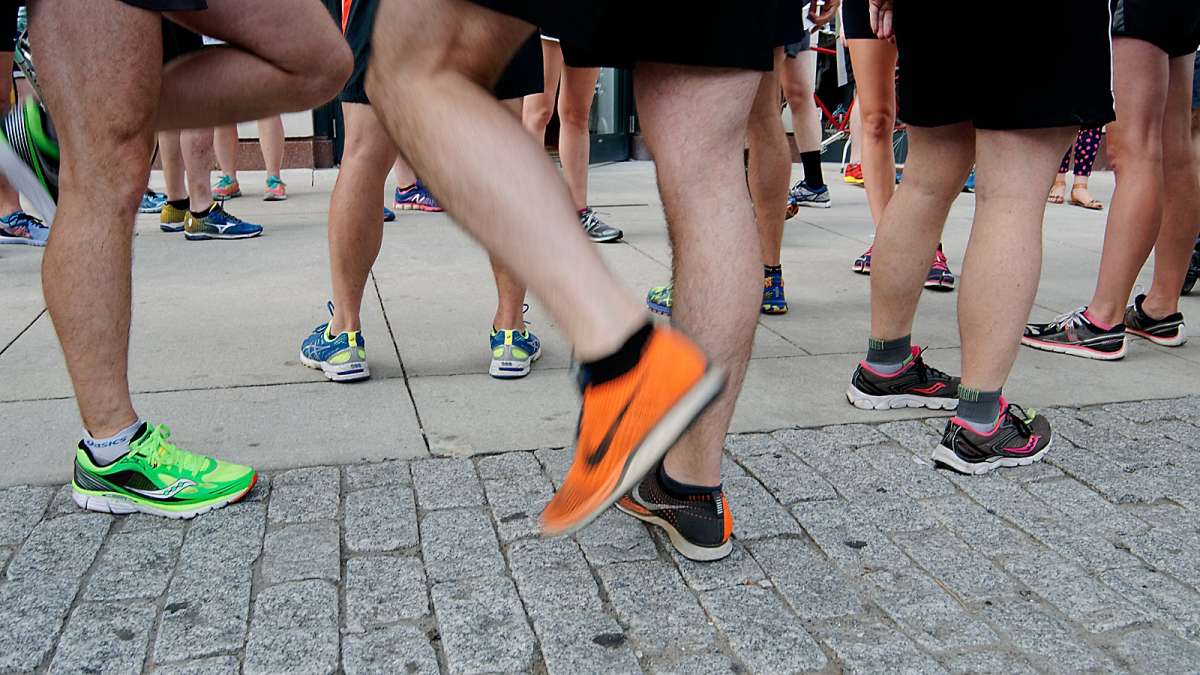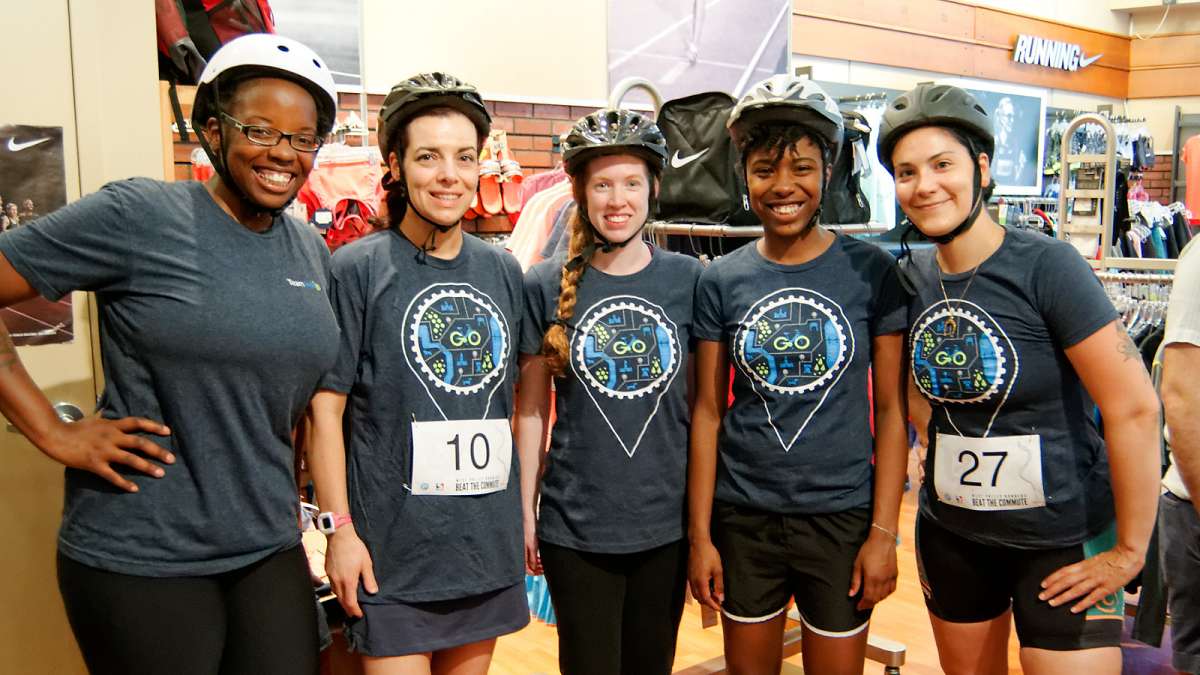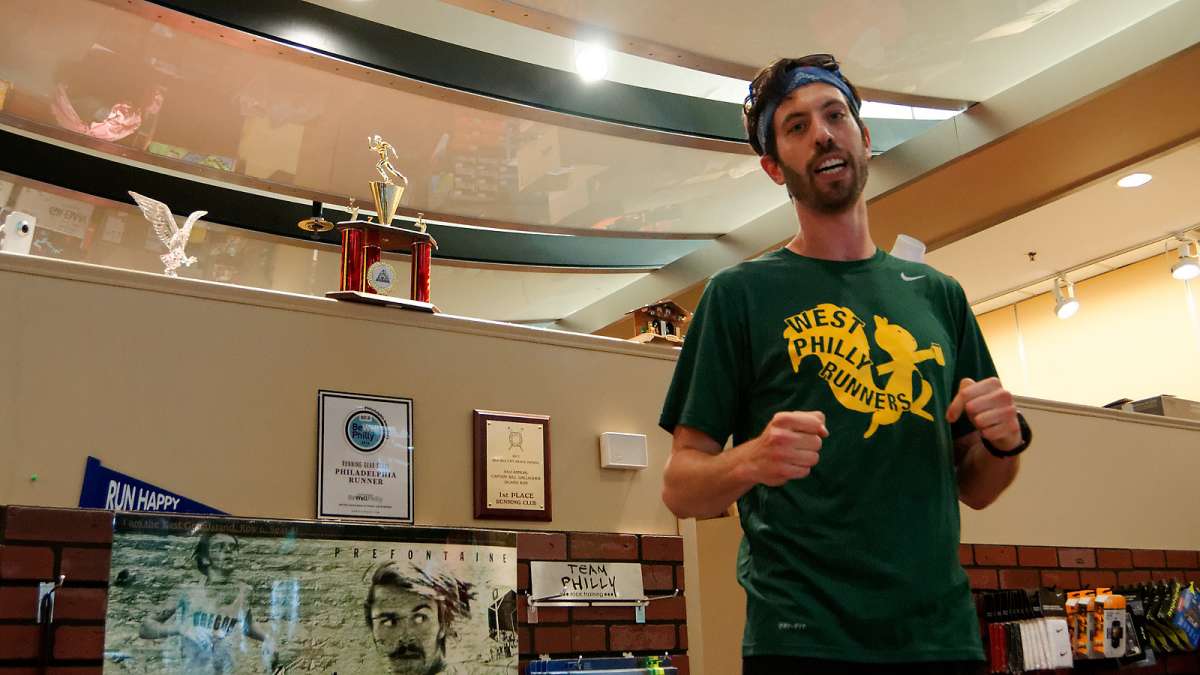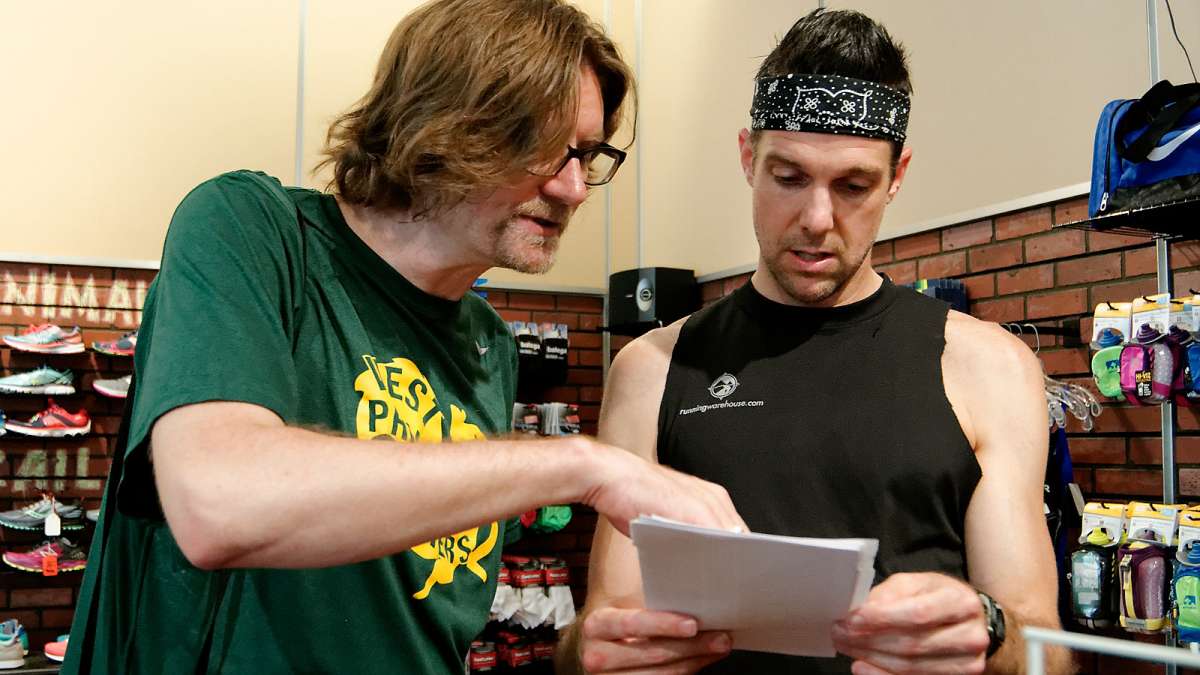Running to beat Philly gridlock
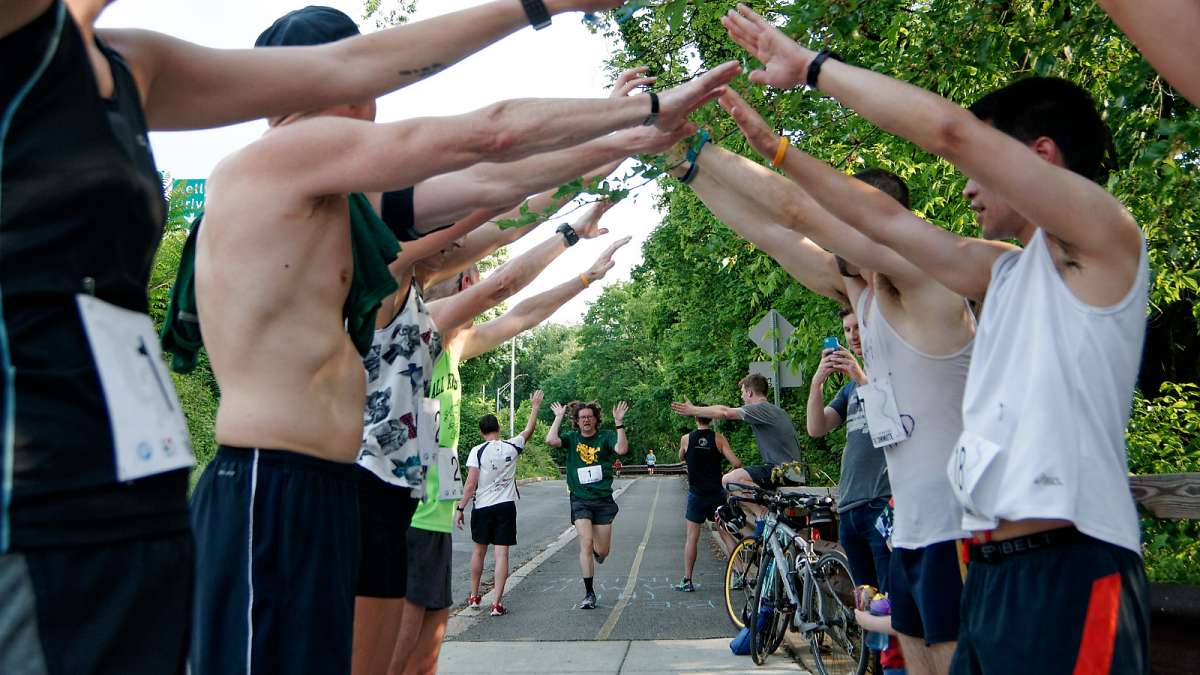
A traffic study earlier this year found that for the average 30-minute commute in Philadelphia, congestion on the road added an extra 18 minutes each day — totaling nearly 70 extra hours per year spent driving to work.
Friday night, a group of Philadelphia runners sought to make a point about gridlock by racing a car and a SEPTA bus starting from near the University of Pennsylvania campus out to the Wissahickon Transit Center during rush hour, a showdown dubbed “Beat The Commute.”
“If the runners beat the car, it’s indicative of a problem I think that we need to work harder to fix, with public transportation rather than widening highways and things like that,” said organizer Kyle Cassidy before the race. “I would like to get more people looking at alternative ways to get to work rather than everybody getting on that same stretch of highway.”
Cassidy and fellow organizer Alon Abramson, both of the West Philly Runners club, dreamed up the event after holding a similar one called “Beat The Bus” last November. In that event the group raced SEPTA across Center City during rush hour.
WHYY is your source for fact-based, in-depth journalism and information. As a nonprofit organization, we rely on financial support from readers like you. Please give today.
Running to beat Philly gridlock
ListenA traffic study earlier this year found that for the average 30-minute commute in Philadelphia, congestion on the road added an extra 18 minutes each day — totaling nearly 70 extra hours per year spent driving to work.
Friday night, a group of Philadelphia runners sought to make a point about gridlock by racing a car and a SEPTA bus starting from near the University of Pennsylvania campus out to the Wissahickon Transit Center during rush hour, a showdown dubbed “Beat The Commute.”
“If the runners beat the car, it’s indicative of a problem I think that we need to work harder to fix, with public transportation rather than widening highways and things like that,” said organizer Kyle Cassidy before the race. “I would like to get more people looking at alternative ways to get to work rather than everybody getting on that same stretch of highway.”
Cassidy and fellow organizer Alon Abramson, both of the West Philly Runners club, dreamed up the event after holding a similar one called “Beat The Bus” last November. In that event the group raced SEPTA across Center City during rush hour.
Abramson said he felt afterwards that beating the bus ended up sending the wrong message about public transportation, which he said was slow only because of how many cars were on the road. He and Cassidy wanted this race to focus more on gridlock.
“If more people got to work in alternative ways, we should not be able to beat a car on Interstate 76 at rush hour,” said Abramson.
According to the terms of the race, all commuters would begin from the same starting point. The car driver would then walk to the parking garage to retrieve the vehicle and take the I-76 route out to the corner of where Ridge Avenue and Lincoln Drive meet. The SEPTA rider would head to 30th Street station and catch the fastest bus.
A group of Indego riders also decided to join the action, putting the new bike share program to the test.
Minutes before the 5:15 p.m. race Friday, as 40 runners stretched and plotted the six-mile route inside the Philadelphia Runner shop in West Philly, Rich Cardona of team car stood alone in the corner of the shop with his arms crossed and aviator sunglasses on.
“There’s a lot of traffic out there, so I’ll say I might beat half the runners,” said Cardona. “I don’t drive fast. I’m not throwing the race by any means, but I’m not trying to drive unsafely.”
It was 85 degrees when the runners finally took off, Cardona headed to the parking lot, Indego riders flocked to the nearest bike depot, while the SEPTA rider jumped on a trolley over to 30th Street — a move that would prove crucial in the end.
Thirty-one minutes later, on the corner just east of the Wissahickon transit center, runner Ben Nieto sprinted across the finish line. Two minutes later, Regan Buker and her son emerged from the No. 124 SEPTA bus for a second place finish.
“It was a good time,” said Nieto, who ran at about a five-and-a-half minute mile pace. “I’m pretty tired, and it is really hot today.”
Buker normally runs with the group but decided not to Friday on account of her son.
“There’s nothing like picking up a kid and taking him up and down the stairs of a transit station though,” said Buker afterwards. “You can also work up quite a sweat.”
Team Car eventually showed up about eight minutes after the bus.
“There was surprisingly little traffic,” said Cardona. “Once I finally got out of the garage then the highway itself wasn’t so bad, but actually departing and arriving really are what took the longest.”
Many of the Team Indego riders arrived shortly behind the car, blaming a late start on logistical problems, and a lack of available bikes due to the program’s popularity.
“It was a nice, fun ride,” said Lia Belardo of team Indego. “I would do a triathlon on this bike.”
Alon Abramson just beat out the car, and was pleased to hear the overall results when he arrived.
“Obviously we’re not all going to run to work every day, that’s crazy,” said Abramson. “But, you should take transit if it’s an option. SEPTA’s here, it’s great, so that’s the takeaway.”
Eventually Kyle Cassidy showed up too, just a little bit later than the car, but was in good spirits.
“It was terrible,” Cassidy said with a smile. “It was the heat that did me in. But it’s great now that it’s over. I will really be enjoying this. If you ask me at the bar how it was in an hour, this’ll be the greatest race I ever ran.”
WHYY is your source for fact-based, in-depth journalism and information. As a nonprofit organization, we rely on financial support from readers like you. Please give today.




